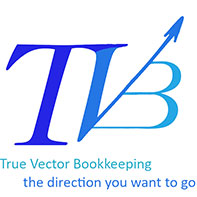Customer and vendor management is essential for both construction companies and other types of businesses, regardless of industry. Effectively managing relationships with customers and vendors can lead to increased customer satisfaction, improved supplier performance, and enhanced business efficiency. Here’s how customer and vendor management can benefit both construction companies and other companies:
Benefits for Construction Companies:
- Customer Relationship Management (CRM): Construction companies can use CRM systems to maintain detailed records of customer interactions, preferences, and project requirements. This allows construction companies to provide personalized service, anticipate customer needs, and build long-term relationships with clients.
- Repeat Business and Referrals: By cultivating strong relationships with customers, construction companies can encourage repeat business and referrals. Satisfied customers are more likely to hire the same company for future projects and recommend their services to others, leading to increased revenue and business growth.
- Effective Communication: Customer management systems facilitate communication with clients throughout the project lifecycle. Construction companies can use CRM platforms to send updates, share project milestones, and address customer inquiries promptly, leading to improved customer satisfaction and retention.
- Customer Feedback and Satisfaction Surveys: Construction companies can gather feedback from customers using satisfaction surveys or feedback forms integrated into CRM systems. This feedback helps identify areas for improvement, measure customer satisfaction levels, and address any issues or concerns promptly to maintain positive relationships.
- Tailored Marketing and Sales Efforts: By analyzing customer data and preferences stored in CRM systems, construction companies can tailor marketing and sales efforts to target specific customer segments more effectively. This personalized approach can lead to higher conversion rates and improved customer acquisition.
Benefits for Other Companies:
- Supplier Relationship Management (SRM): Other types of businesses can use SRM systems to manage relationships with vendors and suppliers. By maintaining a database of vendor contacts, contract terms, and performance metrics, businesses can ensure timely delivery of goods and services, negotiate favorable terms, and resolve any issues or disputes efficiently.
- Cost Savings and Efficiency: Effective vendor management can lead to cost savings and improved efficiency for other businesses. By selecting reliable vendors, negotiating competitive pricing, and optimizing supply chain processes, businesses can reduce procurement costs, minimize supply chain disruptions, and improve overall operational efficiency.
- Quality and Compliance: Vendor management systems allow businesses to assess vendor performance, track product quality, and ensure compliance with regulatory requirements and industry standards. By monitoring vendor performance metrics and conducting regular audits, businesses can identify any non-compliance issues or quality concerns and take corrective actions promptly.
- Risk Mitigation: By diversifying their vendor base and conducting thorough vendor assessments, businesses can mitigate risks associated with supplier dependencies, supply chain disruptions, and product quality issues. Vendor management systems enable businesses to identify potential risks proactively and implement risk mitigation strategies to protect their operations and reputation.
- Supplier Collaboration and Innovation: Effective vendor management fosters collaboration and innovation between businesses and their suppliers. By engaging suppliers in product development, process improvement initiatives, and joint innovation projects, businesses can gain access to new ideas, technologies, and market opportunities, driving competitive advantage and business growth.
- In summary, customer and vendor management are critical components of business operations for both construction companies and other types of businesses. By investing in CRM and SRM systems, businesses can build strong relationships with customers and vendors, drive operational excellence, and achieve long-term success in their respective industries.

